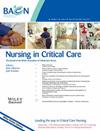摘要
背景:目的:探讨重症监护病房(ICU)护士姑息关怀核心能力的现状,并研究影响不同亚群核心能力的因素:研究设计:横断面定量研究。从 2024 年 3 月至 4 月,随机抽取了 5 家医院的 342 名 ICU 护士参与研究。根据姑息治疗护士核心能力(PCNCC)量表进行了潜在特征分析(LPA),以确定亚组。采用多变量逻辑回归法探讨了社会人口学特征、自主学习能力、工作满意度和亚组等变量之间的差异。这项横断面研究使用了 STROBE 检查表:ICU 护士姑息关怀核心能力的平均得分为(58.96 ± 21.56)分。姑息关怀核心能力有三个不同的亚组,即 "低姑息关怀核心能力组(31.2%)"、"中姑息关怀核心能力组(47.2%)"和 "低姑息关怀核心能力组(21.6%)"。专业职称(几率比 [OR] = 0.161,95% 置信区间 [CI]:0.038-0.673):0.038-0.673,p = .012)、职位(OR = 0.111,95% CI:0.013-0.975,p = .047)、工作经验(OR = 0.169,95% CI:0.030-0.965,p = .046)和自主学习能力(OR = 3.298,95% CI:1.390-7.822,p = .007)是影响中等水平组的重要因素,而职位(OR = 0.101,95% CI:0.011-0.918,p = .042)和自主学习能力(OR = 3.878,95% CI:1.447-10.396,p = .007)对低水平组有显著影响:大多数 ICU 护士被归入姑息关怀核心能力中低水平组;职称、职位、工作经验和自主学习能力是主要影响因素:与临床实践的相关性:ICU 护士,尤其是工作经验不足的年轻护士,应接受有关姑息关怀的具体知识和培训。护理管理者和教育者应针对不同自主学习能力的护士提供有针对性的干预策略,以提高她们在姑息治疗方面的核心能力。Background: Intensive care unit (ICU) nurses play a leading role in integrating palliative care into ICU practices, which requires them to possess professional and comprehensive palliative care core competencies.
Aim: To explore the current status of ICU nurses' palliative care core competency and to examine the factors influencing different subgroups of core competency.
Study design: A quantitative, cross-sectional study. A random sampling of 342 ICU nurses from five hospitals participated in this study from March to April 2024. A latent profile analysis (LPA) was conducted to identify subgroups based on the Palliative Care Nurses' Core Competences (PCNCC) scale. Differences between the variables, including sociodemographic characteristics, autonomous learning capacity, job satisfaction and subgroups, were explored using multivariate logistic regression. This cross-sectional study used the STROBE checklist.
Results: The mean score for palliative care core competency among ICU nurses was (58.96 ± 21.56). There were three different subgroups of palliative care core competency, namely, the 'low palliative care core competency group (31.2%)', the 'medium palliative care core competency group (47.2%)' and the 'low palliative care core competency group (21.6%)'. Professional title (odds ratio [OR] = 0.161, 95% confidence interval [CI]: 0.038-0.673, p = .012), position (OR = 0.111, 95% CI: 0.013-0.975, p = .047), work experiences (OR = 0.169, 95% CI: 0.030-0.965, p = .046) and autonomous learning capacity (OR = 3.298, 95% CI: 1.390-7.822, p = .007) were significant factors affecting the medium-level group, while position (OR = 0.101, 95% CI: 0.011-0.918, p = .042) and autonomous learning capacity (OR = 3.878, 95% CI: 1.447-10.396, p = .007) significantly influenced the low-level group.
Conclusions: The majority of ICU nurses were categorized in the low and medium-level palliative care core competency group; professional title, position, work experience and autonomous learning capacity were the main influencing factors.
Relevance to clinical practice: ICU nurses should receive specific knowledge and training on palliative care, especially young nurses with limited work experience. Nursing managers and educators should provide targeted intervention strategies for nurses with different autonomous learning capacities to improve their core competencies in palliative care.

 求助内容:
求助内容: 应助结果提醒方式:
应助结果提醒方式:


